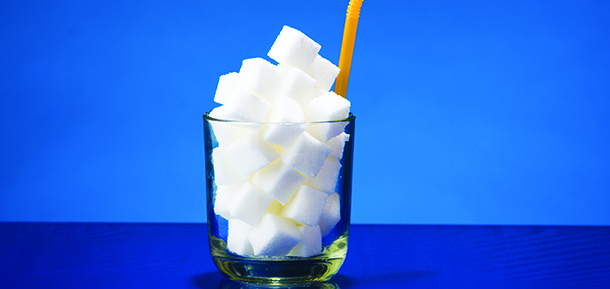In my opinion, the best approach is to not offer juice—or any sugary drink for that matter—to your children. There is a huge correlation between weight gain in children and the amount of sugary beverages they consume, including juice.
Sure, it’s okay to give your child juice on a special occasion, but I think it’s best to not make a daily habit of it.
The American Academy of Pediatrics recommends the following guidelines for amounts of juice children should drink:
- No juice in the baby’s first year
- No more than 4 ounces per day for kids ages 1 to 3
- 4-6 ounces a day for kids ages 4-6
- A limit of 8 ounces daily for those ages 7-18
But in my mind, even those amounts seem too generous.
The Problem of Too Much Sugar
Overall, children across the country eat and drink too much sugar. Eliminating juice is one of the easiest ways to reduce it.
Increased sugar consumption is one of the root causes of childhood obesity that leads to a host of physical ailments, including type 2 diabetes, which is at epidemic levels in the U.S.
In addition, excess juice intake can lead to:
- Diarrhea
- Poor nutrition
- Tooth decay
That last one surprises many parents, but based on the kids we see in doctors’ offices, juice is a significant factor in the poor health of kids’ teeth.
Clever marketing has led some parents to think beverages for kids are healthier than they actually are. Even juices that claim to have no sugar added contain “empty calories.”
It’s important to remember that eating actual fruit is much better than drinking juice. The juice itself typically doesn’t contain the fiber and other nutrients that you get from eating the fruit.
What Kids Should Be Drinking Instead
Ideally kids should drink 20 ounces of milk a day and everything else should be water. It’s recommended that children ages 1-2 drink whole milk. Kids older than that should drink skim or 1% milk.
Drinking more than 20 ounces of milk daily can lead to kids feeling full and not wanting to eat their regular diet. That can lead to nutritional issues. Furthermore, the iron in milk is poorly absorbed by the body, so drinking too much milk can actually lead to an iron deficiency anemia.
Beverage choices available to children can be a tricky landscape of sugar, empty calories, and super-sized portions. It’s always best to discuss the issue with your pediatrician for guidance.





